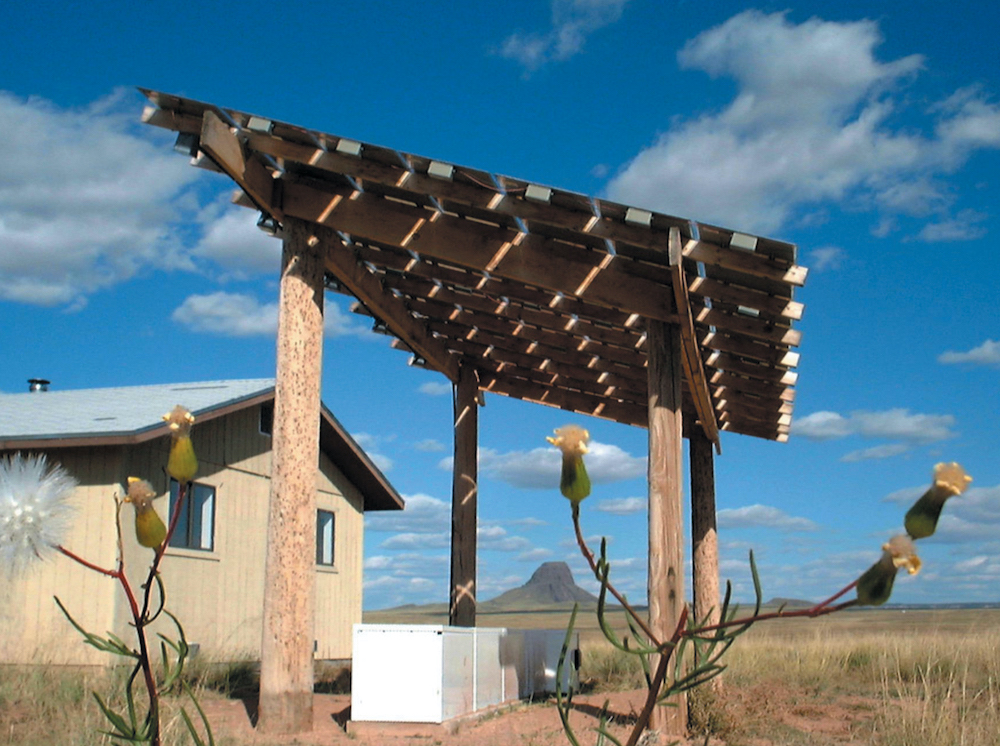
- Details
- By Chez Oxendine
- Energy | Environment
Once seen as “gamechangers” for tribal forays into a growing clean energy sector, tax credits have instead proven to be a minefield of questions around policy implementation and tax exemptions.
In particular, questions have emerged around direct-pay tax credits that allow tribes to claim refundable tax credits on qualified energy projects, and 48e bonus credits, which encourage investments in low-income or disadvantaged areas such as tribal reservations, experts say.
Those questions and tribal concerns have left both programs underutilized. And concerns about the intersection of tribal sovereignty, taxes and tax credits have also created a “new realm of law,” according to Cheri Smith, president and CEO of tribal energy nonprofit Alliance for Tribal Clean Energy.
“We’re building the rocket ship while flying it,” Smith told Tribal Business News. “Generally, tribal lawyers don't have a lot of experience in tax law because tribes don't pay taxes. Generally, tax lawyers don't have a lot of experience with tribes, because tribes don't pay taxes. Everyone's digesting new rules and technical reviews and it's requiring a whole new team at the Department of Energy, which largely hasn't had (tribal) tax expertise in it.”
While the Inflation Reduction Act intended to afford tribes access to a wide range of tax credits, both the market and regulatory confusion are preventing full use of these credits, Smith said.
Energy lawyer Pilar Thomas, a partner at Quarles & Brady LLP, calls tax credits the single most effective way to obtain money for a new project. Grants are competitive and loans have to be paid back, which makes tribes hesitant to pursue them and banks equally hesitant to issue them, Thomas told Tribal Business News.
 Picture (from left): Cheri Smith, Pilar ThomasBeing able to say that a finished project will immediately recoup 30 to 70 percent of its costs, depending on stackable credits, makes the entire equation smoother, Thomas said.
Picture (from left): Cheri Smith, Pilar ThomasBeing able to say that a finished project will immediately recoup 30 to 70 percent of its costs, depending on stackable credits, makes the entire equation smoother, Thomas said.
“Somebody's going to be more willing to invest in a $15-20 million project when they know you're going to get a 30-40-50 percent tax credit. They’re going to be more willing to borrow it,” Thomas said. “The tax credits are really the part that seals the deal from a financing standpoint.”
However, as tribes begin pursuing these new opportunities, Smith said, confusion has arisen about how to implement these credits. Questions range from which forms will be used, to which kinds of tribal-private partnerships qualify for the credits.
“We've seen the new tribal affair offices at Treasury genuinely stepping up and seeking to do things right and provide guidance … on general points of policy,” Smith said. “Meanwhile, the tribes' questions are focusing on specifics, so there is an information gap.”
For example, the IRS’ proposed rule regarding applicable partnerships outlines two kinds of partnerships. One is referred to as tenancy in common, which assigns equal ownership of the involved real estate to both parties. That doesn’t work when trust lands are involved, Thomas said. The other approved partnership, an unincorporated joint venture, wouldn’t allow tribes to establish joint companies with their partners, complicating revenue and tax-credit splits down the line.
The IRS has yet to issue its final rule on the approved kinds of partnerships, but they’ve been receptive so far to tribal feedback, Thomas said, expanding the eligible entities for elective pay tax credits to include tribal agents and instrumentalities, such as housing or even gaming authorities, depending on how they’re set up.
“[The partnerships offered] aren’t going to work, and they need to do something here,” Thomas said. “That’s going to be the biggest challenge.”
Smith pointed to the Low Income Communities Bonus Credit Program, which adds 10 percent to existing investment tax credits for solar and wind energy facilities built in low-income communities. One potential qualifier for that program is whether or not the project in question is located on “Indian Land,” or specifically, land held in federal trust or directly owned by a tribe
While some other categories under the Bonus Credit program have pending applications in the thousands, just 53 have been submitted for the Indian Land category. Roughly 16 of those have been approved, while the rest remain under review.
Confusion around that application process, and relative obscurity around the reasons for failed applications have made it difficult to leverage what would otherwise be easily obtainable money for tribal energy projects, Smith said.
“DOE and Treasury’s processes aren’t completely transparent right now,” Smith said. “We’re trying to learn what the intention is, and if they’re willing to share enough information to include the quality of the applications, as they will soon be going to a rolling application period. Can we improve this review process? We're seeing review-side hot messes. You've got people reviewing these applications who don't understand the culture and challenges for tribal communities — so that all plays into this.”
Groups like the Alliance for Tribal Clean Energy are filling gaps in information and helping Treasury make credits work for tribes on a “case to case” basis, Smith said. There has been some success in that arena, she noted, as tribes and federal agencies navigate the entirely new questions created by the IRA.
That’s helpful in getting some projects off the ground, but it creates more pressure on an already time-sensitive program, given a potential regime change in an election year, Smith said. In the meantime, she looks forward to both philanthropic efforts to support tribal energy in the wake of federal funding - and renewed interest in mending federal policy toward tribes, with energy as just the “starting point.”
“The clock is ticking and loudly, so we want to get shovels in the ground, so as much of this funding and these credits can be deployed in case they do go away soon,” Smith said. “It's very much about building the right relationships and being in the right relationship. Energy has proven to be this really powerful place to intervene in the breakdown of the trust responsibility of our government - this is the ideal place to repair that while we get this structure built.”
In the meantime, tribes can take proactive steps toward getting a project underway, Thomas said. Firstly, the IRS has asked that tribes or tribal entities begin registering their projects through an online portal ahead of time.
Secondly, and most importantly, tribes who haven’t done so already should hire tax lawyers and accountants, Thomas said.
“Do not, as a tribe, file your tax returns on these projects yourself,” Thomas said. “That’s the biggest risk to us right now. This is not like your single-audit filing you have to do with a clearing house for grant purposes. Hire a tax accountant, somebody to fill out these forms for you, prepare them, and put them on the hook for making sure this information is correct.
“For the most part if you do what you've got to do, you're going to get a fat check from Uncle Sam.”
